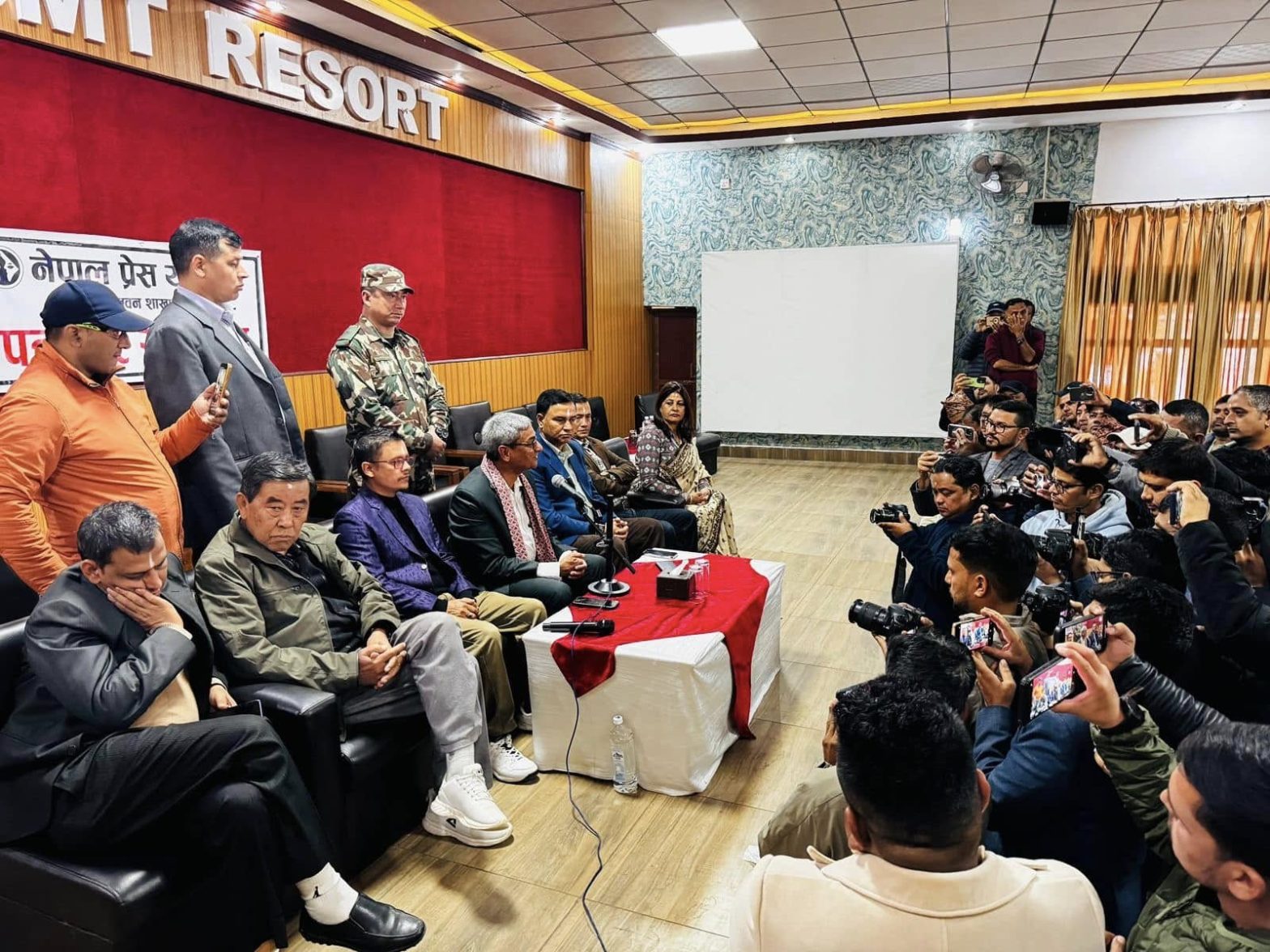Kathmandu: Minister for Home Affairs, Ramesh Lekhak, has assured that the government will ensure consensus from all political parties to amend the Constitution, emphasizing the importance of this amendment for strengthening Nepal’s federal democratic republic and promoting inclusion. Speaking at a press meet organized by the Nepal Press Union, Chitwan chapter, today, Lekhak stated that while preliminary discussions have already begun, the constitutional amendment will not be solely determined by two political parties.
“The amendment process will involve broad consensus, not just the views of the Nepali Congress (NC) and CPN (UML),” he said, referring to the two largest parties in Parliament. He added that the government’s primary aim is to promote political stability, curb corruption, strengthen good governance, foster economic growth, and expedite development.
In his address, Lekhak reaffirmed that the current political alliance between the NC and UML, which formed the coalition government, remains intact and will continue until the next general election in 2084 BS. He dismissed any speculation about rifts within the alliance, stating that the coalition is committed to achieving long-term stability.
On another front, Minister Lekhak emphasized the government’s commitment to safeguarding human rights. He specifically addressed the ongoing legal proceedings involving Rabi Lamichhane, the chair of the Rastriya Swatantra Party, clarifying that the government holds no ‘revenge’ motive in the case. “The investigation is a legal matter, and it is not appropriate to question the legal proceedings,” Lekhak said.
Meanwhile, Nepali Congress Spokesperson Prakash Sharan Mahat, speaking at a separate press meet organized by the NPU in Parsa today, advised the government to carefully consider the need for foreign loans. Mahat, who previously served as Finance Minister, highlighted the financial challenges Nepal faces in repaying loans taken after the COVID-19 pandemic.
“The government should only seek external loans based on genuine need,” Mahat urged, stressing the importance of prioritizing investments in productive sectors to support economic growth. He also cautioned against taking on “unnecessary loans” from neighboring countries, urging a strategic approach to borrowing in order to avoid exacerbating the nation’s debt burden.
